Why Nations Struggle or Thrive
Last Friday, I posted the Global Well-Being Map from the Gallup Organization which showed how the countries of the world stack up on an index of well-being which runs from "suffering" to "thriving."
The Gallup study found a "clear well-being divide between the wealthier countries of northern, western, and central Europe and some poorer countries within eastern and southern Europe."
Economic development clearly plays a role in levels of national well-being or happiness. A major cross-national study by University of Pennsylvania economists Justin Wolfers and Betsey Stevenson found a close association between income and the happiness of nations. As Wolfers writes: "1) Rich people are happier than poor people. 2) Richer countries are happier than poorer countries. 3) As countries get richer, they tend to get happier."
But other factors also appear to be at play. It is not just the level of economic development that matters, but its nature and type. The past several decades have seen a shift from older industrial-style economies and societies to newer post-industrial ones characterized by higher levels of knowledge-based, professional, and creative jobs, more highly educated populations, and a shift toward what Ronald Inglehart has dubbed "post-materialist values" -- a diminished commitment to traditional authority and institutions and a shift toward self-expression, openness, and tolerance. My recent research with Charlotta Mellander and Jason Rentfrow finds evidence that post-industrial socioeconomic structures and post-materialist values matter to the happiness of nations, especially of the most advanced nations, in addition to the effects of income and the level of economic development.
With Mellander's help, I took a quick look at the factors which might be associated with this new Gallup well-being index of the well-being of nations. Not surprisingly, the level of economic output plays a key role, but post-industrial structures and post-materialist values do as well. Before going any further, let me point out that this analysis is based on simple correlations which identify associations between variables but do not specify causality.
"Thriving" is positively correlated with the level of economic output, measured as GDP per capita (.65).
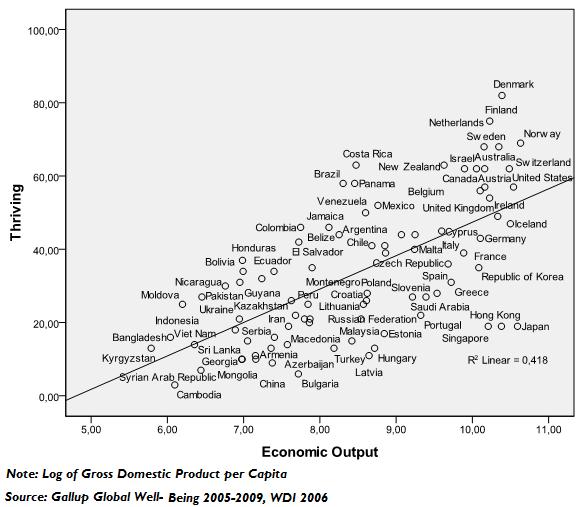
"Thriving" is also associated with the level of education (.45) and share of the workforce in knowledge-based, creative, and professional occupations (.42).
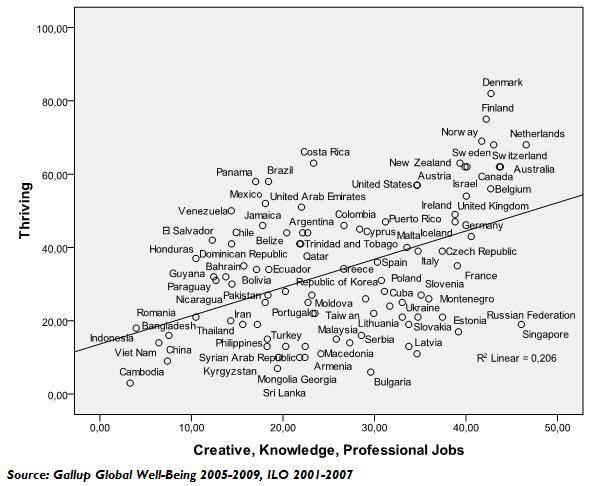
And it is also correlated with attitudes toward racial and ethnic minorities (.44) and gays and lesbians (.7).
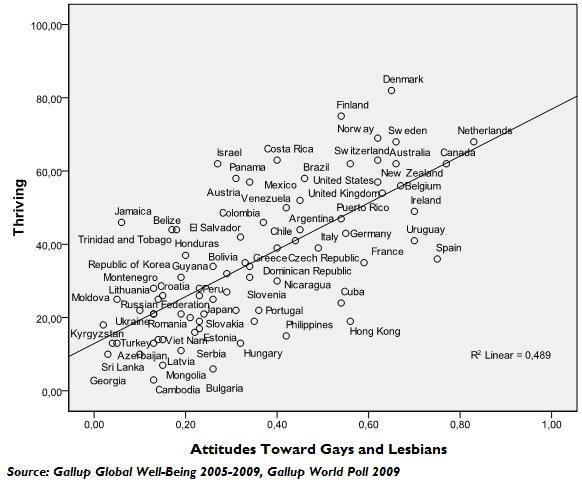
"Struggling" is negatively correlated with the level of economic output (-.57).
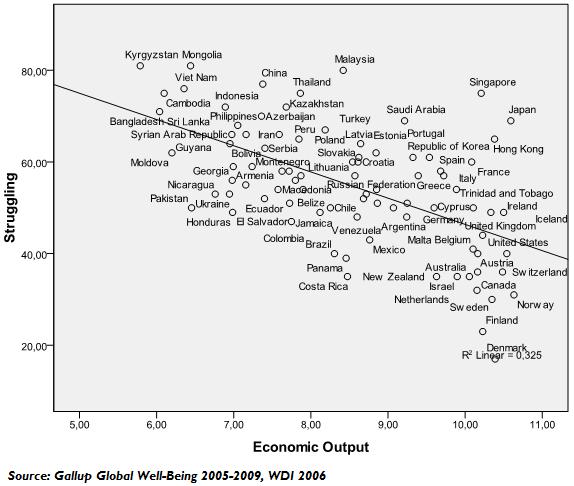
It is also associated with the share of the workforce in knowledge-based jobs (-.5), the level of education (-.4), and with attitudes toward racial and ethnic minorities (-.38) and gays and lesbians (-.63).
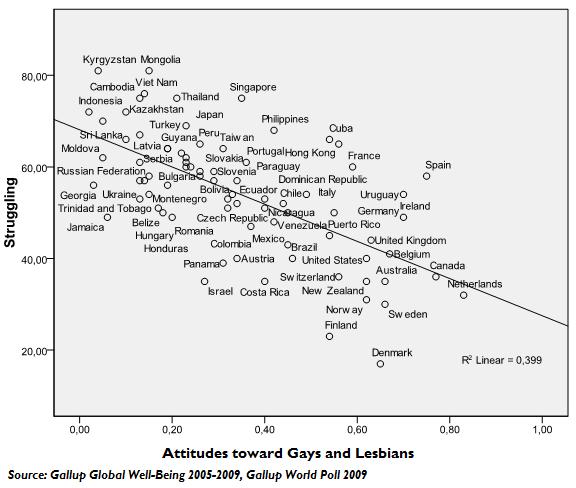
"Suffering" is negatively correlated with the level of economic output (-.5).
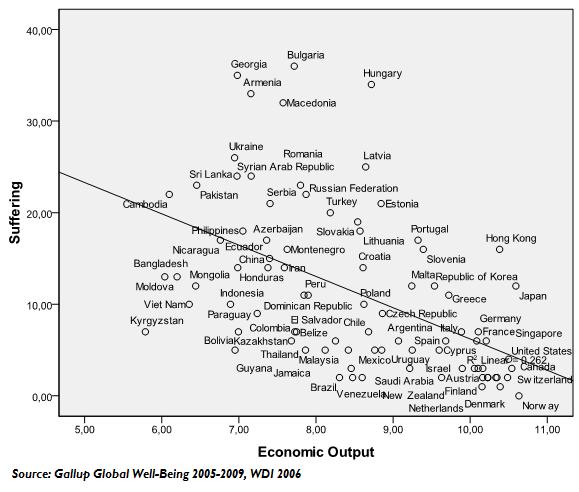
It is also negatively correlated with attitudes toward ethnic and racial minorities (-.34) and even more so with attitudes toward gays and lesbians (-.56).
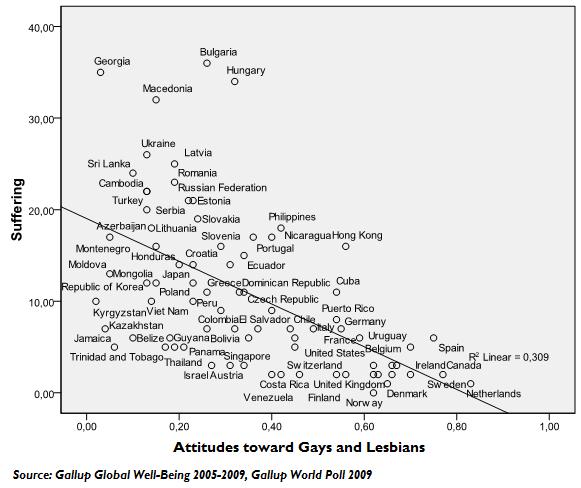
This is just a first cut. We are actively probing these issues in further detail and with more advanced statistical techniques in our ongoing research. But for now, we can say that while income and the level of economic development play an important role in the happiness of nations, well-being is also related to the type and nature of economic development and the values it engenders. There is something in the nature of post-industrial economies and in their values that appears to affect the happiness of their people over and above the effects of income. Perhaps it is that people with higher levels of education have more flexibility or choice in pursuing their dreams, building families and social relationships that are more fulfilling, or simply in their ability to adjust to misfortune or bad times. Perhaps it is that knowledge-based jobs are more challenging and fulfilling. It's also clear that the most troubled societies -- those with the highest reported levels of suffering -- also, generally speaking, face the highest levels of intolerance. While income and the level of economic development certainly need to be top of mind considerations when we think about or attempt to act on the happiness of nations, one simply cannot neglect the effects of economic and social structure and of values in social well-being.